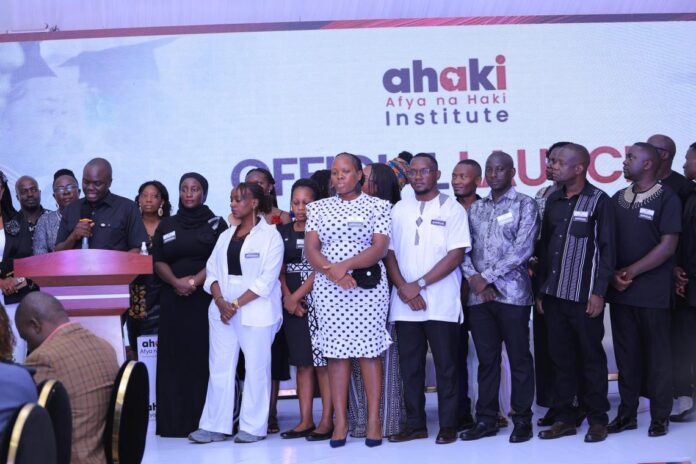Wakiso – The Ahaki Institute, a pioneering institution dedicated to transformative learning and leadership in health and social justice, officially launched on Thursday in Gayaza-Nakwero, Wakiso district.
This milestone marks a significant step forward in providing professional education, training, and research in health and justice, tailored to the unique needs of the African continent.
The institute has been accredited by the National Council for Higher Education to offer programs in social health, including a Bachelor of Sexual and Reproductive Health and a Post Graduate Diploma in Sexual and Reproductive Health, set to begin in August this year.
Speaking during the launch, Charles Olaro, Acting Director General for Health Services, emphasized the need for institutions like Ahaki to contribute to research and homegrown solutions to tackle challenges such as maternal and child mortality, teenage pregnancies, and non-communicable diseases among others.
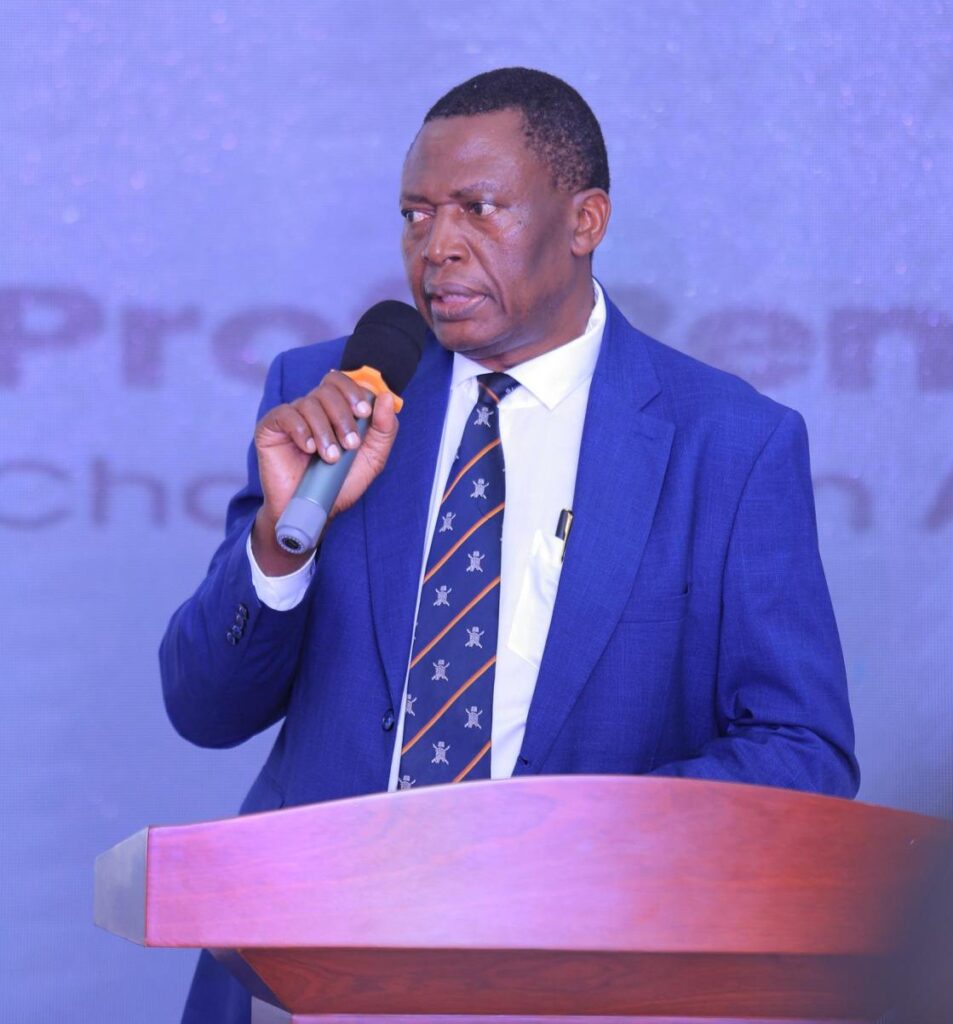
“The other challenge is workforce shortages, and I’m happy that this institution is stepping in to contribute to addressing this issue. Currently, we have 24.6 healthcare workers per 10,000 population, far below the recommended 44.6 per 10,000 population. This highlights the urgent need for more healthcare workers. However, it’s not just about increasing numbers; we also need to improve how we absorb, retain, and sustain these workers. That’s where institutions like this come in – as part of their research arm, we can explore solutions to these key challenges,” said Dr. Olaro.
According to Dr. Moses Mulumba one of the Institute founders, the institution aims to be a specialist entity focusing on health, social justice, and human rights issues from an Afrocentric perspective.
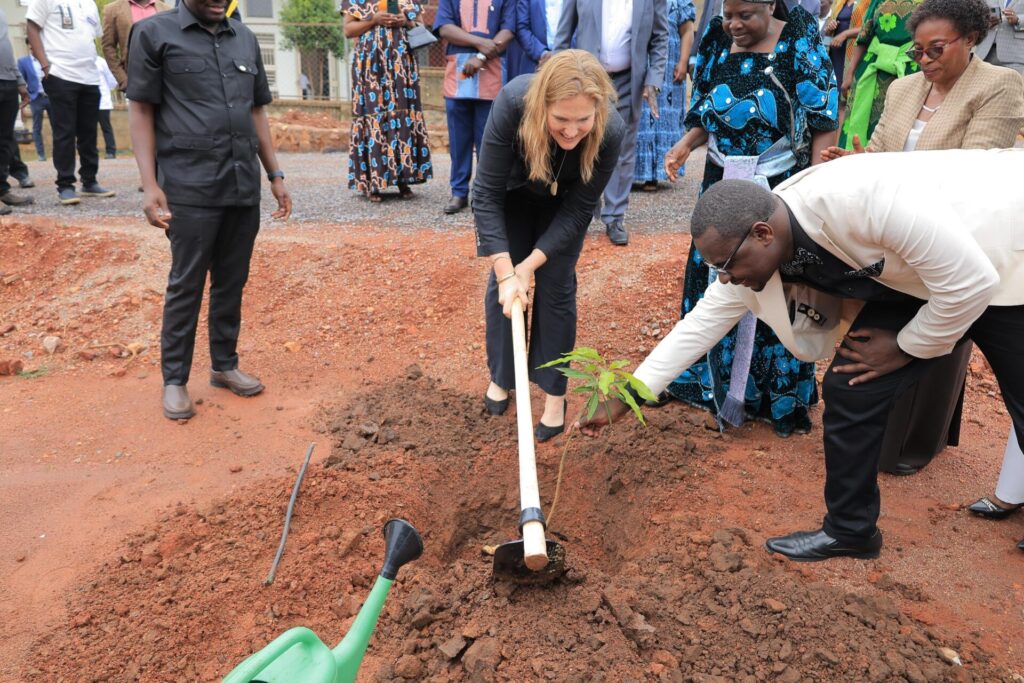
“We’ve been focused on research and short courses, but now we’re expanding to include degree programs,” Dr. Mulumba explained. He added, “We’re working on developing more courses, with a focus on health, social justice, and human rights issues from an Afrocentric perspective.”
Owek. Cotilda Nakate Kikomeko, Minister for social services and office of the Nabagereka in Buganda government, representing Charles Peter Mayiga, the Katikiro of Buganda, commended Ahaki Institute’s choice of programs in health and justice, stating that these fields are fundamental to national development.
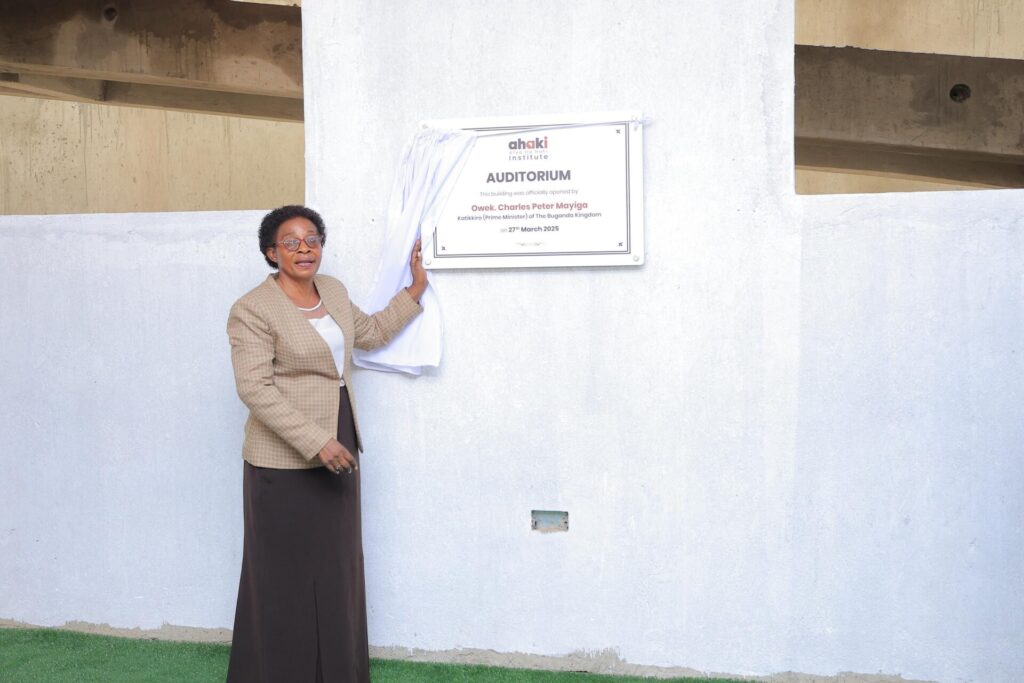
“A healthy population is a productive one, capable of driving national prosperity. Similarly, a just society safeguards rights and upholds the rule of law. By offering these courses, you are making a direct contribution to our nation’s growth and stability,” said Owek Nakate.
Frederick Quispel, Ambassador of the Kingdom of Netherlands in Uganda, also congratulated Ahaki Institute on its launch, noting that it marks a significant milestone in providing professional education, training, and research in health and justice. She emphasized the importance of addressing health challenges, including sexual reproductive health and rights, and praised Ahaki’s focus on these areas.
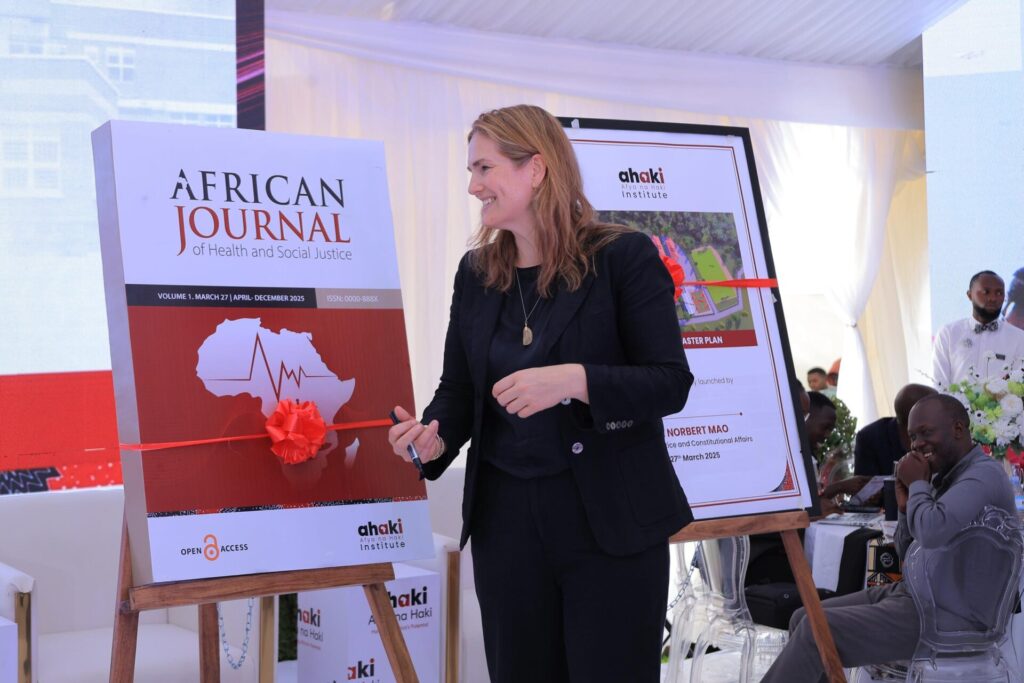
“We acknowledge that many women and girls face heightened risks of poor health and mortality due to their reproductive roles and limited access to sexual and reproductive health services. Their social position in society renders them vulnerable, predisposing them to sexual and gender-based violence. This is an issue that warrants ongoing discussion and attention, and institutions like this one play a crucial role in sparking such conversations,” said Quispel.
The launch of Ahaki Institute convened key policymakers, leading African scholars, practitioners, activists, and development partners from across the continent and beyond. These stakeholders engaged in critical conversations on the future of health and social justice in Africa.
As part of the launch, Ahaki unveiled its state-of-the-art auditorium, a cutting-edge intellectual arena designed for dialogue, research, and innovation. The Institute also launched the inaugural edition of the African Journal of Health and Social Justice, a critical platform for amplifying Indigenous research and decolonized scholarship, prioritizing voices from the Global South.


